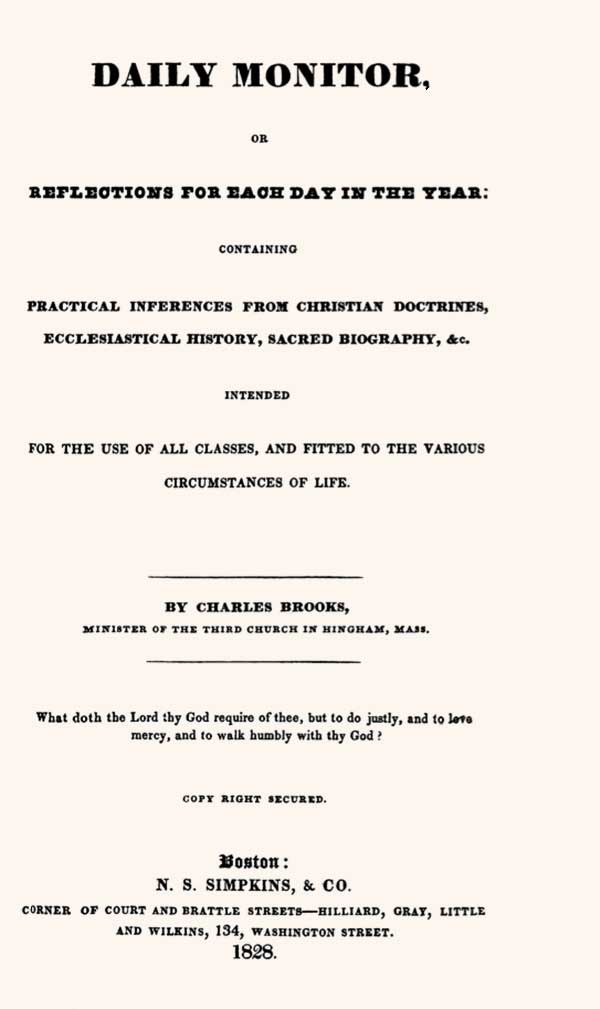Falsehood is criminal

Title page of Brook’s Daily Monitor
Today's Devotional
Speak every man the truth to his neighbor—Ephesians 4:25 (KJV).
We should suppose the odious vice of lying would be so deeply and generally detested as to work its own cure. But, every day we have reason for distrust and caution. We cannot give implicit faith to the declarations we hear, or the movements we notice. I shall mention but a few instances.
I. A common mode of lying is exaggeration. There are persons who deal altogether in superlatives, who cannot endure a plain honest delineation. Hence we find them swelling and stretching a description beyond nature and truth.
II. Another mode is equivocation: clothing our thoughts in words that we intend shall bewilder, or shall convey a meaning different from the one in our minds. This balancing of remarks upon a pivot, leaving them to weigh one side or the other, as interest shall afterwards demand, shows a deep and watchful dishonesty.
III. A third mode is flattery. The flatterer puts on the garb of honesty. Is it any palliation for having poisoned your friend that you concealed it in honey?
IV . Another mode, common in business, is to misrepresent goods in a light they do not deserve.
VI. Another mode is the rash or prejudicial word that casts a stain upon a character that can never be wiped off. The slanderer is the incendiary of society. Truth is violated, too, by excessive praise, bestowed on people whose office or wealth alone protect them from general execration.
VII. Another mode is to not tell the whole truth. One who adds to or withholds from a narration any fact that belongs to it, is a falsifier and sacrifices the principle that binds society together.
Falsehood is dishonorable. It is strictly forbidden by Christianity. Truth, by contrast, is God’s own friend.
. . . . .
Contemplate the story of the Incarnation day-by-day throughout the season of Advent in our latest publication, The Grand Miracle. Based on the writings of C. S. Lewis, J.R.R. Tolkien, George MacDonald, Dorothy Sayers, and others, each day’s reading offers a fresh look at the birth of Christ through the eyes of a modern author. Scripture, prayer, and full-page contemplative images complete each entry. 28 days, 64 pages. Preview the Devotional here.
. . . . .
About the author and the source
In the preface to his Daily Monitor, Charles Brooks (1795–1872), minister of Third Church in Hingham, Massachusetts, declared his intention was “to convey heat rather than light.” He was a strong supporter of normal schools (teachers’ colleges). This devotional is condensed and adapted from his lengthy treatment.
Charles Brooks. Daily Monitor, or Reflections for Each Day of the Year… Boston: N.S. Simpkins & Co., 1828.






